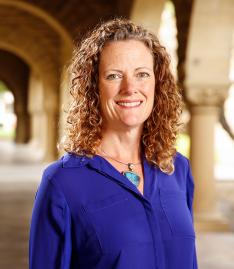AIChE will undertake a routine upgrade of our digital infrastructure between 12AM to 6AM ET on Tuesday April 22. During this time access to all services that require login or payment will be unavailable.
Beth Pruitt

Beth Pruitt joined the Department as a Professor in April 2018. She graduated from the Massachusetts Institute of Technology (MIT) with an S.B. in mechanical engineering. She was in Navy ROTC at MIT where she learned sailing, leadership, and perseverance. She received an M.S. in Manufacturing Systems Engineering from Stanford University then served as an officer in the U.S. Navy, first at the engineering headquarters of the nuclear program then as an instructor teaching Systems Engineering (and offshore sailing in the summer) at the U.S. Naval Academy. She earned her Ph.D. in Mechanical Engineering at Stanford University where she specialized in MEMS and small-scale metrologies for electrical contacts and was supported by the Hertz Foundation. She was a postdoctoral researcher at the Swiss Federal Institute of Technology Lausanne (EPFL) where she worked on polymer MEMS. She started the Stanford Microsystems Lab focused on small-scale metrologies for interdisciplinary micromechanics problems in mechanobiology, biomechanics and sensing. As a visiting professor in the Lab for Applied Mechanobiology in the Department of Health Sciences and Technology at ETH, Zurich in 2012 she worked with Viola Vogel's lab on biophysical measurements of cells and proteins. She has been recognized by the NSF CAREER Award, DARPA Young Faculty Award, Denice Denton Leadership Award and is an elected Senior Member of IEEE, and a Fellow of the ASME and AIMBE.
Research in the Pruitt lab seeks to understand the role of mechanics in biology and force sensitive pathways in cell-cell adhesion and subcellular organization, the role of mechanical environment on the structure and function of stem cell derived cardiomyocytes as biophysical models of health and disease, and to develop models of mechanical signaling underlying the sense of touch and hearing. This research in cell biomechanics and mechanobiology includes development and application of custom microfabricated sensors and systems, new diagnostic tools and analysis systems, and robust manufacture and application of force sensors in harsh environments. Leveraging microscale tools, researchers in the Pruitt lab seek to answer open questions in the areas of physiology, biology, stem cells, neuroscience and cardiology with an eye toward quantitative and fundamental biophysics.
